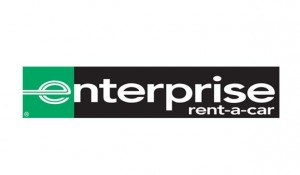Democratic lawmakers in both the House and Senate have introduced legislation that would require rental car companies to repair recalled vehicles before putting them back into their fleets.
The issue has become a hot topic when a jury slapped giant daily rental company Enterprise with a $15 million verdict, in 2010, after two young women were killed due to a defect that the firm had not repaired. Enterprise had repeatedly rented the Chrysler PT Cruiser despite receiving a recall notice.
“We will not rest until Congress has passed legislation that protects American consumers from these unsafe vehicles, and we urge all the rental car companies to join Hertz in committing to the safety of their customers,” said Sen. Barbara Boxer, a California Democrat.
The new Senate legislation – which mirrors a House bill introduced last month – comes as three of the four major rental firm, including Enterprise, Dollar Thrifty and Avis, have dug in their heels and rejected a voluntary repair plan. Only Hertz has so far agreed to take recalled vehicles out of its fleets until they are repaired.
In May, Enterprise management had indicated it would also stop renting recalled vehicles but has since said the company wants an exemption allowing it to continue to use those vehicles in its fleet if the recall involves minor problems. The firm would prefer to be able to continue rentals while advising customers the vehicles are subject to recall.
There are a wide range of recalls. Several manufacturers have this year staged callbacks because the wrong tire inflation information was posted on the placards found in the driver’s door jamb. At the other extreme, Ford recently announced a series of recalls for the new 2013 Escape including one advising owners of certain models to park the vehicle until a leaky fuel line can be fixed.
Together, the four firms control about 92% of U.S. rentals. Enterprise alone, through the Enterprise, National and Alamo brands, accounts for about a third of all airport business in the U.S.
The proposed legislation has won widespread support from both consumer groups and from the National Highway Traffic Safety Administration.
The measure does not cover limousines, car services or taxis, but Boxer says that gap can be addressed later.
While the rental companies say the proposed legislation would create problems by forcing them to take cars out of service at times when business might be heavy they also insist they are normally quick to respond to recalls. Enterprise contends 90% of the affected models in its fleet undergo necessary repairs or inspections within 90 days.
General Motors and Chrysler have advised NHTSA that, on the whole, about 50% of vehicles used by rental companies are in compliance with a recall within one year.
The legislation first introduced into the House last month is called the Raechel and Jacqueline Houck Safe Rental Car Act of 2012. The bill is named after the sisters whose vehicle went out of control, crossed a highway median and struck a tractor trailer in 2004.
“When demand called, we rented out recalled vehicles, it happened, I won’t lie,” the California jury hearing the case was told by Mark Matias, who had served as an Enterprise area manager in San Francisco, near where the accident occurred.
Enterprise initially tried to blame the sisters, arguing 24-year-old Raechel, who was behind the wheel, might have been “suicidal or on drugs.” The company rejected a $3 million settlement offer that, ironically, would have allowed it to keep the case out of the public eye by sealing all court documents.

